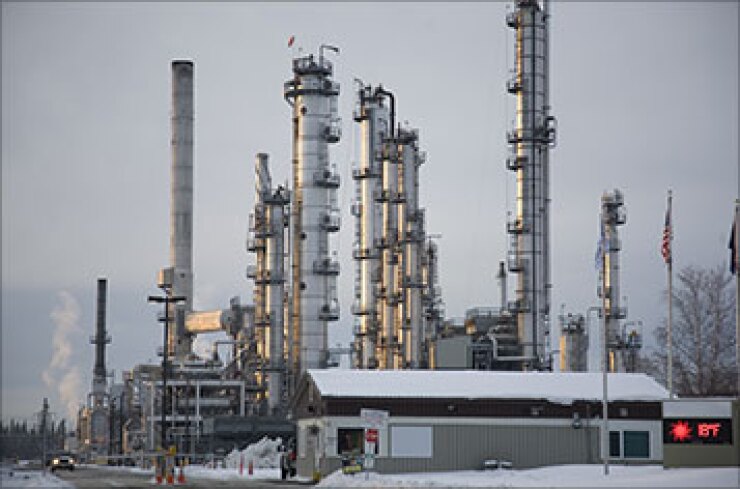
SAN FRANCISCO — A lower revenue forecast due to declining oil prices will not have any immediate rating impact on the state of Alaska, according to Fitch Ratings.
Wednesday's substantial reduction in Alaska's fiscal year 2015 price forecast for crude oil produced on its Alaska North Slope, offset by a modest increase in oil production, has lowered the state's revenue forecast for the current fiscal year by almost $2 billion.
Alaska's price forecast for crude oil dropped to $76.31 per barrel from $105 per barrel.
"The revised forecast increases the state's earlier anticipated revenue shortfall to almost $3.4 billion that Fitch expects to be covered by a draw from the state's vast financial reserves," analysts said in a report released Thursday. "In enacting the FY2015 budget the state expected to utilize almost $1.4 billion from its statutory budget reserve fund to support appropriations — that projected application has more than doubled."
The state also lowered its price forecast for fiscal year 2016 to $66 per barrel from $107.69 per barrel while estimating higher production from investments on the North Slope and Cook Inlet.
These revisions will lower the revenue forecast for that year by a net $2.5 billion.
"Through the life of the forecast period, to 2023, the state's price expectations have been reduced, which if proven correct, will result in financial reserves being depleted faster than the state's earlier expectations, in Fitch's opinion, despite Fitch's expectation that the state will take balancing actions," analysts said.
Fitch rates Alaska AAA, citing the state's maintenance of very substantial reserve balances and conservative financial management practices.
The state has witnessed a gradual decline in production at its oil fields for many years, but its tax revenues have largely continued to increase as a factor of increased prices for North Slope crude oil.
Fitch said the key considerations for the state's credit quality will be if price expectations remain subdued and to what extent recent developments influence the state's decisions on applying its reserves to operating costs.
"For local governments in the state, the impact is less direct and much more gradual, driven by changes in property tax revenues that are not directly linked to oil prices," analysts said. "Nevertheless, a sustained period of very low oil prices would put pressure on some municipalities through reductions in long-term oil industry investment, assessed valuations and employment."





